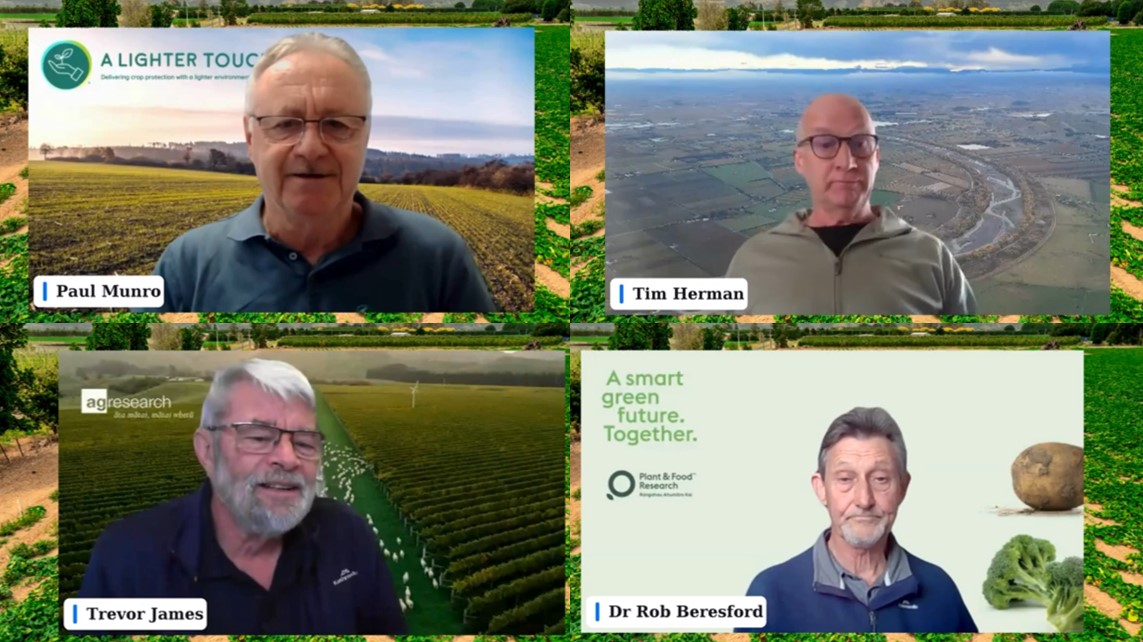The need for ongoing resistance management strategy updates and reducing reliance on agrichemicals were priorities for the future discussed at the A Lighter Touch resistance management forum.
Held as a webinar earlier this month, the forum attracted strong interest, with 120 registering, and a peak audience of about 90 attending online. The full recording of the webinar, and each presenter’s slides are available in the Resources section of the A Lighter Touch website.
Presenters Dr Trevor James, of AgResearch, Dr Rob Beresford, of Plant and Food Research and Tim Herman from BASF provided an overview of recent updates to the resistance management strategies and discussed the practical implications in terms of advice to industry.

ALT Transition Technical Lead Paul Munro hosted the Resistance Management Forum, with presentations from Dr Trevor James, of AgResearch, Dr Rob Beresford, of Plant and Food Research, and Tim Herman, of BASF.
As part of its work in pesticide resistance management, A Lighter Touch has funded and overseen the updating of resistance management strategies. The updated strategies can be found on the New Zealand Plant Protection Society website.
Trevor highlighted the need for ongoing updates of the strategies, noting the last resistant weed was added to the herbicide strategies in 2021 and since then about six more species have developed resistance. He also said there was a need to add more crop or mode of action strategies in light of the latest cases of resistance.
Rob emphasized that adhering to resistance management guidelines was of crucial importance in the short to medium term in order to prolong the useful life of at-risk fungicides.
“However, the way forward for the future has to be to reduce reliance on fungicides through new research to transition cropping systems away from agrochemical dependence and towards use of disease resistant cultivars, cultural disease management practices and integration of biocontrols as soon as we possibly can.”
Tim discussed the important role of industry collaboration in effective resistance management, not only involving scientists and crop protection companies, but also bringing growers and the grower organisations along. “These strategies are guidelines, they’re not a prescription, and everyone in the industry has a role to play in ensuring they are followed to in order for them to be effective for the benefit of the whole industry.”
He also noted that as the industry moved away from older broad-spectrum products to softer chemistry and encouraged beneficial predators as part of crop protection programmes, there was a need to fund more work researching the relationship between products and beneficials to ensure the impacts of one on the other was clearly understood. “From there, hopefully it will be a new dawn of the resistance management era.”
Following on from the webinar, A Lighter Touch Transition Technical Lead Paul Munro is organizing a workshop involving representatives from crop protection organisations, grower bodies and the science community. This workshop will focus on identifying gaps in the existing strategies, determining priorities for future work and discussing how to ensure the strategies continue to be regularly updated in the future.